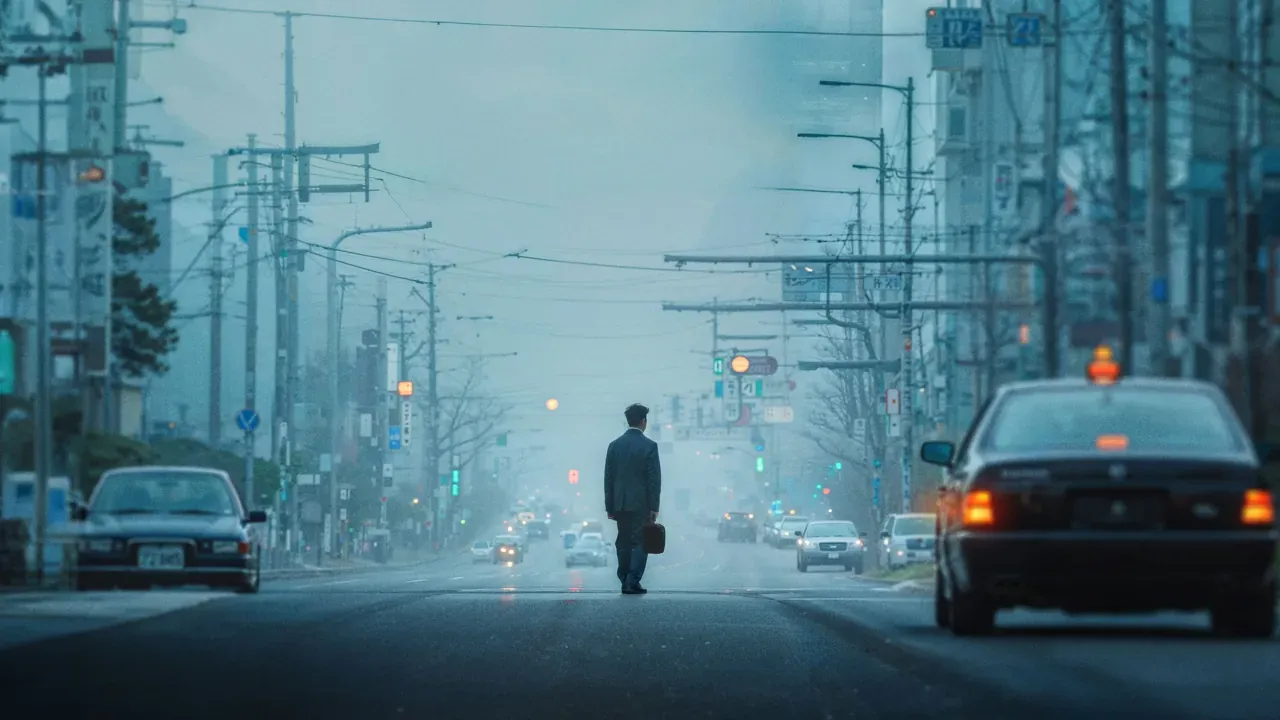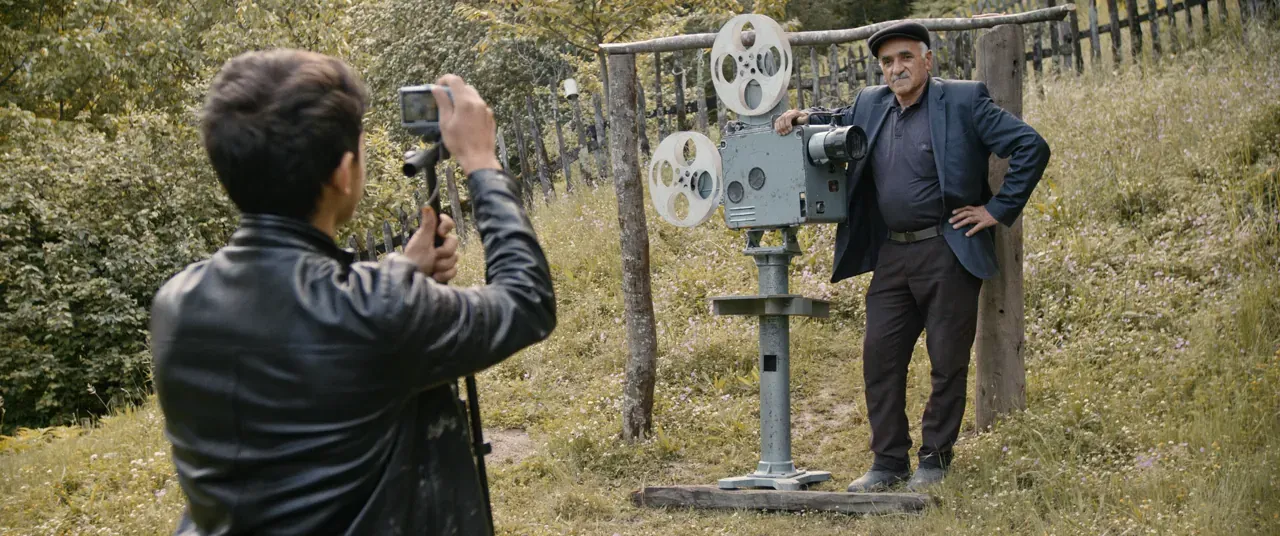I checked out five films from the DocPoint 2025 roster before the festival, which is now taking place in Helsinki. While the entire catalog is full of great documentaries and each deserves your attention, these are my picks for the must-see films of the week.

Scream of My Blood: A Gogol Bordello Story
★★★★
Gogol Bordello was a massive influence in my teen years. I first heard their music when I was 17 when a copy of Voi-La Intruder dropped into my hands at a CD collectors convention in 1999. After that, I was hooked on the wildly lyrical, multi-faceted roller-coasters that Eugene Hutz and his band put out for the next decade-plus. I had the biggest crush on Elizabeth Sun. I went to every concert I could and knew the lyrics to every song they put out.
Then, around the time of Trans-Continental Hustle, I dropped out. There was no big drama about it. These things just happen. I still listened to my favorite songs on occasion, but the passionate love affair was over.
Scream of My Blood doesn't reignite that flame, but it does remind me why Hutz's work struck a chord so strongly. Their music is passionate, vibrant, and smart while masquerading as loud and obnoxious buffoonery. It feels like a party because, for the most part, that's all Hutz wants it to be.
But there's a level of anger and frustration that goes hand-in-hand with the music. Hutz, a Roma/Ukrainian immigrant, has a keen eye and sharp understanding of the refugee experience, and his found-family dynamic between band members from all walks of life reflects that. At its best, Scream of My Blood is a timeless portrait of the power of art, and how it brings together broken people in a communion of laughter and love that transcends boundaries.
At least, that's the neat and tidy version of it, and there's very little beyond that which Scream of My Blood wants to explore. The film borders on hagiography, and at least my bullshit sensors went off more than once while watching it. While the footage of early gigs and teenage attempts at first bands is fascinating, much of the documentary focuses on building a legend of Hutz that feels manufactured. Especially as every interview subject has nothing but good things to say. Despite the lawsuits and accusations that have shadowed the group in the past decade.
Despite this, Scream of My Blood is a lively and often poignant documentary about musicians making their mark on their terms. There's no question that Hutz's heart is in the right place, even if he comes off so strong it's bound to put off others. There is a level of self-serving advertising that comes with the territory, but for fans and the newly curious, Scream of My Blood is a fine way to acquaint yourself with the raucous music of a band that, at one point, meant the world to me.
Scream of My Blood: A Gogol Bordello Story ‣ Docpoint – Helsinki Documentary Film Festival

Johatsu – Into Thin Air
★★★★
Every year, thousands of people in Japan willingly disappear yo start new lives elsewhere. Their reasons are as myriad as the people themselves. Some escape abusive relationships or parents, others debts or even the mob. No matter the reason, the results are the same: they leave and stay gone, as if they never existed.
Johatsu follows the work of a facilitator who helps people vanish. It doesn't explain, accuse, or defend the work. Instead, it allows us a glimpse into a world of desperation and second chances that I didn't know even existed. But now that I do, I'm only surprised by how unsurprising it is. In a hyper connected world like ours, escape has to take a drastic form to be fully effective.
Where Johatsu proves even more intriguing is in it's depiction of those who've escaped, and the person-shaped hole they've left in the lives of others. Granted, many don't pursue the missing, but some that do carry with them questions that will pain them for the rest of their lives. Why would someone leave? And why would they leave in such a desperate, final way?
Johatsu arguably bites off more than it can chew, and the lingering pace with few answers will annoy some. I was frustrated on my first viewing at how little traditional closure we get. Then, days later, I couldn't stop thinking about it. We rarely get closure in life. Much less so with relationships that remain unfinished. Instead, we just have to move on with the uncertainty and hope that, whatever the result, that everything works out as is intended.
It's not closure, and it's not perfect, but that's life. Johatsu is a revelatory peek into these aspects of starting over that we rarely discuss. It is heartbreaking and engaging and impossible to forget.
Johatsu – Into Thin Air ‣ Docpoint – Helsinki Documentary Film Festival

An American Pastoral
★★★★★
If you want a warning of what's coming, look no further than An American Pastoral, a frightening and dispiriting portrait of society spinning back into the dark ages.
The focus is on the election of a local school district's council, a minor position in a small town that shouldn't amount to much, yet it proves a microcosm of political control and rage at large.
The division is clear from the outset. Democratic candidates work to keep the school system progressive and inclusive, where students can safely explore their identities and learn from classic books about the world beyond the confines of their small town.
On the other side are the conservatives, who have spiraled into even more radical extremes. Gun-toting and Bible-thumping, they preach made up words of a violent savior who is determined to keep DEI and minorities from the lives of Real Americans.
If that sounds nightmarish, An American Pastoral has much worse in store. In two hours, it paints a harrowing image of a country so at odds with itself and reality that I can't help but wonder how we'll ever return to sanity.
As a documentary, it's a dispassionate and smart one. The filmmakers never interject or editorialize. Instead, thanks to incredible access to all sides, they let the subjects do the talking. When people want to show off to the camera, they say what's in their hearts, and the contradictions pace way to ugly hatred that bears no resemblance to the holy book they swear by.
In the end, An American Pastoral offers no comfort or answers, and there's a sense that this is only the beginning of dark times ahead. But it is vital viewing. It's the train hurtling towards us at a million miles an hour. We can't look away. Already this behavior is creeping into the Finnish landscape, and we have to know and understand it to ensure that sanity prevails.
An American Pastoral ‣ Docpoint – Helsinki Documentary Film Festival

The Return of the Projectionist
★★★★★
A mountain village in Azerbaijan is hosting the first film screening in decades. The projector is as ancient as the projectionist, and not all the pieces work as intended. But the show must go on.
A young cinephile, Ayaz, helps the old projectionist, and their generational gap is bridged by a shared love for cinema. There is an element for Cinema Paradiso here, and it's heartwarming and life-affirming.
This delightful and tender slice of life documentary has small stakes, yet for anyone who loves film, they will be as momentous as the most thrilling action film. Cinema, after all, is the great empathy machine. It allows us to experience the world through the eyes of others. Bringing even a mere moment of that joy to this remote part of the world is important. It keeps us human.
Shot with a loving lens towards both the environment and the altar of cinema itself, The Return of the Projectionist is a beautiful story of passion in unlikely environments, and the connecting power of movies no matter who or how old we are.
The Return of the Projectionist ‣ Docpoint – Helsinki Documentary Film Festival

The Wolves Always Come at Night
★★★★★
This is a film of great beauty, terror, and quiet devastation that left me with nightmares. It paints a haunting image of the ruined world we've created for ourselves, and the immediate cost of the terror that is to come.
Set in Mongolia, where over 70% of the land has degraded to the point of almost being inhospitable to life, The Wolves Always Come at Night is a warning sign of what climate change looks like now, and how it's only the beginning.
The film does not preach nor admonish. Instead, it presents the facts with hard and unflinching determination. We see the results of our actions, and how they already have begun to unravel societies around the planet.
Will it turn people around? Is such a thing even possible? I don't think it will. Most will refuse to see that which is obvious even when presented in such an elegant and painfully beautiful manner as here.
But even if it's destined to be a hauntingly bleak reminder of our shortsightedness, The Wolves Always Come at Night is more than worth seeing. It's a poignant and timely reminder, and a time capsule of a world that, if we don't do something, will soon be gone forever.
The Wolves Always Come at Night ‣ Docpoint – Helsinki Documentary Film Festival









